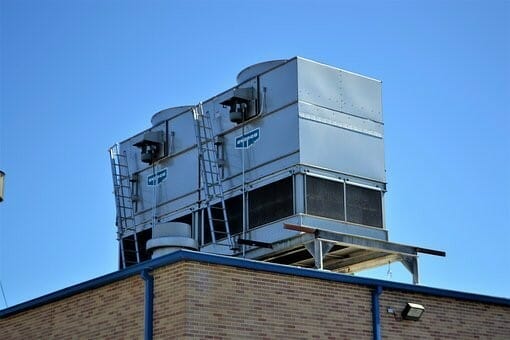Kraft Paper Bags – A Unique Bag to Get Your Company Noticed
Kraft paper bags are available in a variety of sizes, weights, and shapes to suit all your carrying or storage needs. Kraft paper bag manufacturers offer sturdy, easy-to-carry kraft paper bags, which provide a durable and convenient solution for packing heavy materials. Kraft paper bags have a number of interesting features that make them a hit among buyers and sellers equally. Extending the physical features of kraft bags, you can make use of the bags as a potential source of advertising your brand or product. Read on to find out a unique proposition that is making waves among small and large businesses alike.
Kraft paper bags are eco-friendly
Kraft paper bag manufacturers will enlighten you about the consumable and recyclable materials used in the making of durable the environment friendly bags. The make of these bags allows business owners to print high-quality images on the bags and use them as a means of advertising their business. You can have kraft paper bags custom printed with product or product service announcements.
Kraft paper bags are the perfect grocery bag solution
Kraft paper bag manufacturers can help you with bags in large, medium, and small sizes. This variety in size makes kraft paper bags a convenient packaging solution. Additionally, when not in use, the bags can be folded easily, enhancing the convenience offered by the bags. Packaging your goods in kraft paper bags will make a positive impression on your customers, reminding them of the top customer service that you provide. Your customers will also appreciate the fact that they can carry large items with ease. A perfect bag for carrying diary, fruit, vegetable, or groceries.
Keep your brand in vogue with kraft paper bags
Today, people have become increasingly aware about the products they purchase. Furthermore, they are beginning to take note of the allied services. In that case, receiving products in environment-friendly packaging puts your brand on a pedestal. Customers are actively looking for products that are more natural and providing them with wholesome solutions is a unique way of promoting your brand value.
Contact wholesale kraft paper bag manufacturers
Many distributors can make kraft paper bags available to you; however, given the large quantities, you require, contacting kraft paper bag manufacturers will help you secure an inexpensive deal.
You will agree that packaging requirements are diverse and often an unavoidable cost of any business organization. Packaging is also an effective marketing tool. With companies trying to find innovative solutions to advertise their brand, kraft paper bags offer a unique approach that meets their goal. In addition, these bags are environmentally friendly and do not pose a threat to the environment like ordinary plastic bags.
Trees are used to make kraft paper bags, but since they are planted dedicatedly for this purpose, they do not harm the environment. Planting these trees reduces the amount of carbon dioxide in the atmosphere and prevents global warming.
Get prices online
Many retailers and wholesalers are now offering branded products from various kraft paper bag manufacturers. By simply browsing the internet, you can easily find kraft paper bag suppliers and make use of competitive online bids from merchants.
Kraft paper bags are the perfect new-age solution for packaging. Supermarkets and malls are now flooded with kraft paper bag products, a testament to their growing popularity. Kraft paper bags offer a convenient and economically advantageous packaging solution, which can easily double up as a unique marketing solution for your brand. Print your colorful logo on the packaging and become a part of a growing tribe of climate-conscious brands while promoting your brand. Reach out to kraft paper bag manufacturers to get your hands on a truly unique method of promoting your brand using eco-friendly methods.
What is Professional Networking and Why is it Important?
The professional connections you have and can build up can make a significant difference in your career and business. That is why many professional and business people focus a portion of their time on networking and growing their contacts. By understanding the purpose and importance of professional networking, you can develop a strong professionals network that could benefit you in the present time and coming years.
What is professional networking?
Professional networking is about reaching out to, connecting with, and developing professional relationships with established and upcoming professionals in your field or related industries and with prospective clients. You may network in person or online. The networking can happen at live or online networking events, seminars, conferences, lectures, workshops, and training programs. You are also networking when you connect with people at your workplace, at college alumni clubs, at sports events, on social occasions, while traveling, on online professional sites, and over social media. Volunteering your professional services for social causes can be another important way to network.
Building a strong professionals network can take time and effort. Several factors can influence it, such as your professional knowledge, soft skills, work experience, and industry standing. Rather than just considering the favor you can ask from people in your network, you should think of ways to help them in return and build mutually beneficial relationships.
You may benefit from setting practical networking goals to get the most out of your networking activities. For instance, you might plan to share at least one new insight with your network every week or connect with four new people in your industry in a month.
Why is professional networking important?
Professional networking is important for the following reasons:
• It can help you to establish yourself as a skilled, dependable, trustworthy, and ethical professional.
• It can help you to increase your professional visibility in your industry.
• It can enable you to connect with knowledgeable people in your field.
• It can keep you informed about industry trends, developments, and opportunities.
• It can offer you access to valuable industry information and resources.
• It can help you to reconnect with previous clients, employers, colleagues, and employees.
• It can enable you to meet with prospective clients, employers, colleagues, and employees.
• It can help you to find business mentors, partners, and investors.
• It can help you to find well-paying jobs and business deals not advertised elsewhere.
• It can help you to hear about new skills and learn these to foster your career development.
• It can help you to stay ahead in a competitive business environment.
• It can help you to get professional feedback on your work and projects.
• It can help with marketing your talents, products, and services.
What are some professional networking tips?
The following networking tips may help you to benefit from your interactions with your professionals network:
Focus on establishing connections with the right people: you will benefit more from your professionals network if you focus on connecting with people in your field who are more advanced in their careers and are renowned for their expertise.
Remember to follow up with your new connections: a crucial step in professional networking is to follow up on the contacts you made or initiated during your networking activities. Many people forget or neglect to do this and fail to move the new relationship forward. It may help to get in the habit of sending a brief, personalized message after meeting someone new. You can let them know you enjoyed interacting with them and that you look forward to sharing mutually beneficial professional information and insights with them. You can also send them a connection request via social media or a professional networking site.
Keep in frequent touch with your existing connections: it will help to regularly communicate with your existing contacts and continue strengthening those relationships. You need to make a point of showing your genuine appreciation and thanking people when they help you out with anything. Even if it is a small thing, it is important to let them know that it mattered and made a difference to you and your career. You should also demonstrate your willingness to return the favor and offer professional advice and assistance whenever necessary.
Why Do Small Businesses Need IT Support?
Inadequate personnel, client reliance, and combining a desire to develop excellent products with the need to grow sales volume, to name a few, are all problems that small business owners confront. In reality, the majority of the most significant issues that small businesses face center around one core theme: the bottom line. Many small firms are striving to expand on a shoestring budget, and their lack of cash forces them to make difficult decisions about how to use their limited resources. Unfortunately, technical assistance is an area that many small businesses overlook. Given how much the ordinary modern corporation relies on computer systems and networks to perform day-to-day operations, this is a bad idea. Here are the reasons for maintaining small business IT service.
Reasons for Maintaining IT Support for Small Business
• Implement Appropriate Solutions: Whether you require new hardware or data processing software, computer security, or network management choices, your tech support team or respected consulting organizations can assist you in determining the best solutions for your business while balancing your demands and budget. This is critical for several reasons. First and foremost, the ordinary small company owner is unlikely to be aware of the many hardware and software alternatives available, let alone which ones are appropriate for their needs. An IT expert can assist in putting the appropriate components in place, guaranteeing operational efficiency and security. Furthermore, professional tech support services may maintain and expand current infrastructure as needed, keeping gear and software up to date and executing updates as necessary. In today’s corporate world, having the proper technology in place is critical for stability and growth.
• Maintain Systems: It’s not enough to hire a pro to set up your network; you’ll also need someone to keep your systems running. While company owners and workers can be responsible for updating software and hardware regularly (or updates may be automated), as well as upgrading when necessary, it’s far better to have a trained expert manage and maintain your computer network.
• Monitor Usage: When it comes to computer and network operations, having the appropriate structure in place may go a long way toward assuring efficiency and security. However, don’t overlook the possibility of human mistakes. This is when professionals and monitoring services come in handy. Whether you’re concerned about employees misusing resources or want to be on the lookout for potential data breaches, proper monitoring by a technical support team is a critical component of security.
• Educate Staff: You want to put your faith in your employees to create and maintain passwords correctly. You also want them to use technical resources in the best interests of the firm. You’ve even implemented regulations to that end. With the right technical assistance on hand, you can keep your employees informed on how to act around the computer and network equipment. Hackers are continually coming up with new techniques to dupe employees into giving them access. Tech support professionals or consultants can keep your team up to date on the latest attacks.
• Prevent Breaches: This is the most common reason for having tech assistance these days. When hackers target your company, it’s not an issue of if, but when. Without tech assistance, your small business is far more exposed to security breaches, which may result in data loss, legal difficulties, and reputational harm.
• Maximize Profit: Whether you engage specialists in-house or deal with outside consultants or organizations, you will have to pay for IT assistance. However, you’ll reap a slew of benefits as a result of the procedure, including reducing waste and increasing efficiency and profit. In reality, you’ll have to pay someone for tech assistance at some point. You may either pay a bit extra for devoted employees or hire specialists on a contract basis. In any case, you’ll receive support services from people who are experienced with your business in your time of need. When your computers go down or a hacker infiltrates your system, you’ll be pleased you have a team of dependable tech support experts on your side to fix the problem, limit the damage, and get you back up and running as soon as possible.
A Guide On How To Select The Best Commercial HVAC Company
Choosing a commercial HVAC company is something that sometimes gets shrugged off until you need one in a hurry. That’s when you begin dialing numbers hoping to find a company that meets all your needs. What are your needs, what do you need from an HVAC company, and better yet, how do you choose a company that is the best fit for you commercial needs?
What are your HVAC needs.
Reputable commercial HVAC companies are able to offer a variety of services, and although you may not require them all, you should know what they offer so you can ensure that they can meet your needs. The first thing to ask yourself is, why are you calling a professional out? Is your commercial business too hot or too cold? Do you need a cleaning or is this an emergency? Does your commercial business have kitchen exhausts, dryer vents, or air ducts that need to be cleaned? You should also find out the make and model of your current system so you can ensure that the technician is knowledgeable with your specific system’s requirements. Getting this information before you call can save a lot of time and hassle.
Learn about the technicians
When time is important, often people just hope that the person who comes to do the work is capable and able to do the job to their satisfaction. However, when looking for commercial HVAC companies, take the time to ask about the people that they will be sending out. Learn about their credentials. HVAC technicians should all be licensed when coming to work on your system. Ensuring their credentials can also help ensure that they are well trained and competent. Technicians should also be insured for the work that they complete. A reputable HVAC company will gladly give this information to potential clients. If a company is not willing to provide information about their technician’s license and insurance, you may want to consider looking for a different commercial HVAC company.
Obtain quotes and proposals
Commercial HVAC systems are expensive to purchase and maintain. When maintenance is required, ensure that you receive in writing a quote. In the event that you are replacing a system, ensure that there is a written proposal of the breakdown of cost. Not everything goes according to plan, and there may be changes that are needed to maintain your system; however, a written quote will ensure that you are getting all the work you’ve agreed upon at a cost that was agreed upon. If appropriate, learn about guarantees and funding, such as money back satisfaction guarantees or no payment financing for one year. If commercial HVAC companies are not willing to give written estimates or proposals, consider searching for another company.
Search and review potential HVAC companies.
Gone are the days when you would hear, “I know a person who knows a person that can do what you want.” In today’s digital age, you can take advantage of any information you do hear ad then do some research to find out more for yourself. There are many online review sites for businesses. Google reviews is a quick way to learn what others are saying about the commercial HVAC companies that you are considering. A reputable company will leave the negative ones on the site with a response. There will always be positive and negative reviews, so read through to see if there is a pattern of negatives or positives and how any concerns were addressed. Other review sites may include YELP, indeed, or glass door. These review sites may also include comments from previous workers about their experience. Also, do not hesitate to ask the company for references from their current customers. Follow up with these references to see what their experience was, how the work was, how the worker’s attitude was—and did they stay in budget and on time?
There are many commercial HVAC companies that are willing to do the work. Take your time and ensure that you are getting the best company to meet your needs. Ensure that you research and compare quotes and reviews from multiple commercial HVAC companies.
Office Space: How Do I Calculate How Much I Need?
Whether you are establishing a new office or shifting to a new business address, you need to determine the workspace that you will need. There is no exact science to calculate how much office space is ideal for your business. It completely depends on your preferences and business requirements. However, having an estimate can be extremely helpful.
Your real estate agent can ask you for an estimated space requirement to check the availability in your desired location. Also, you will be signing a lease term, and any miscalculations can negatively impact your business and finances. Hence, determining your office space requirement becomes necessary.
Let us discuss in detail how you can calculate your required office space.
1. Determine the number of employees
The first step in calculating your office space is determining the number of employees. This number does not only consist of your current workforce but also takes into account the future employees of your company.
For most offices, you will need to sign a lease term for three to five years. Depending on your lease term, you need to determine how many employees will be joining the company each year to arrive at the final employee count.
2. The layout of your office
Some workplaces may require a private office for their employees, while others can use an open area workspace where multiple employees sit with each other in close proximity. Depending on the work culture of your office work area can also be separated into cubicles providing some amount of segregation and privacy.
The choice for layout will differ from business to business. For example, law firms may prefer private offices as the occupation requires confidentiality and privacy. However, open area workspace can be used for call centers or sales agents. Cubicles can be preferred by designing firms.
Choosing the layout of your office depends on your preferences, and you can also use a mixed layout to suit your business needs.
3. Categorize the employees based on their space requirement
Not every employee in your office will be allocated the same office space Manhattan. After you have chosen the layout of your office, you need to determine how many employees will be needing private offices, cubicles, and open area workspaces.
Presidents, vice presidents, and managers from different departments may require a private office. Cubicles can be provided for engineers, secretaries, programmers, customer service representatives, accountants, etc., and employees for data entry and clerical work can be allocated open area workspaces.
The space requirement for private offices can be 200 to 400 square feet. Employees in cubicles can be given a working space of 150 to 200 square feet, and employees in the open area can be allocated somewhere between 100 to 150 square feet.
This area is not just the workspace but also consists of common-use areas like conference room, reception area, walk space, canteen, etc.
4. Permanent rooms and spaces
Your office area will also include some permanent rooms and spaces like meeting rooms, reception area, board room, conference room, kitchen, file room, library, etc. If your business has advanced technological needs, you may also require a place for computers and servers.
Space requirements for these rooms will depend on your business needs. However, a rough estimate can be 150 to 200 square feet for permanent spaces like file room, library, mailroom, etc. However, the size of the reception area, canteen, and conference room will depend on the total number of employees in your organization.
After you have successfully determined the space required for each part of your office including, the additional area for growth, you can easily calculate your required office space. However, other factors like the cost of the property also need to be considered. The shape of the estate is also crucial as it can lead to wastage of space, and you may end up paying for the area you may not be able to use.














